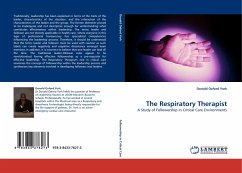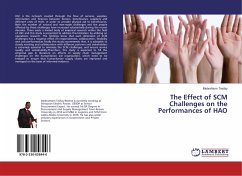Traditionally, leadership has been explained in terms of the traits of the leader, characteristics of the situation, and the interaction of the characteristics of the leader and the group. The former elements proved to be inadequate and not descriptive enough for understanding what constitutes effectiveness within leadership. The terms leader and follower are not directly applicable in health care, where everyone in this type of professional bureaucracy has specialized competencies influencing the leadership process. Therefore, it should be understood that the terms leader and follower must be used with caution as such labels can create negativity and cognitive dissonance amongst team members.In addition, it is incorrect to believe that one leader can lead all the time. The traditional leader-follower roles appear to be revolutionized having effective followership as a pre-requisite for effective leadership. The Respiratory Therapist's role in critical care examines the concept of followership within the leadership process and synthesizes key elements involved in developing followers into leaders.
Bitte wählen Sie Ihr Anliegen aus.
Rechnungen
Retourenschein anfordern
Bestellstatus
Storno








